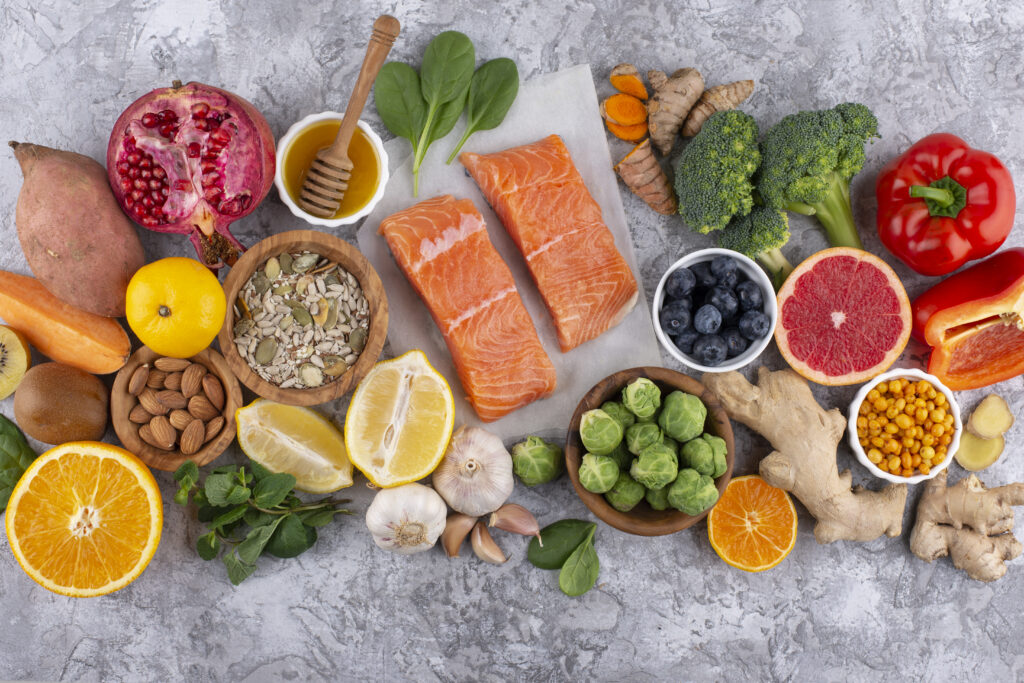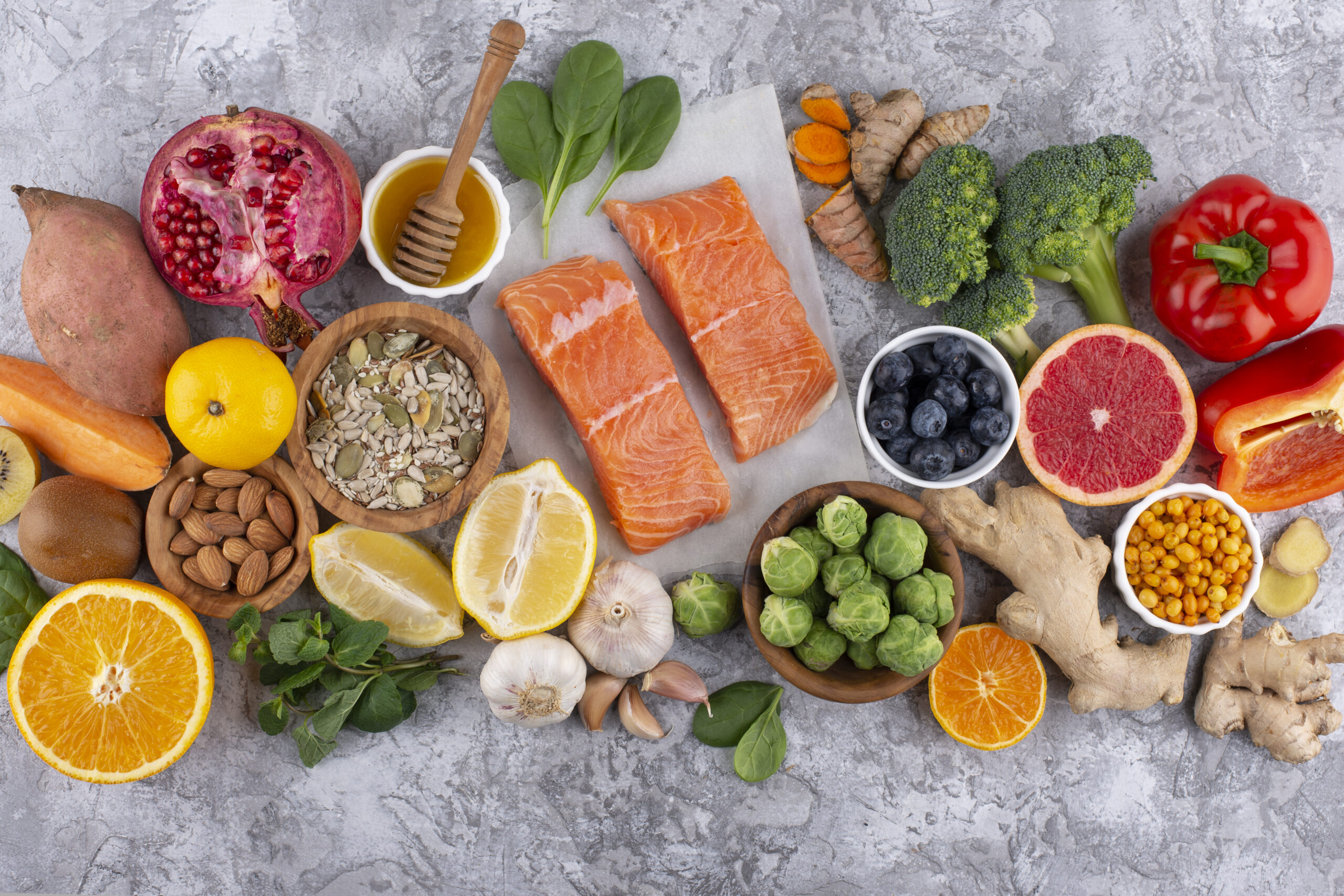Preface to Vitamin D
Vitamin D, frequently appertained to as the” sun vitamin,” is a fat-answerable vitamin that plays a pivotal part in maintaining overall health.
Unlike utmost vitamins, your body can produce it when your skin is exposed to sun.
This nutrient is vital for numerous fleshly functions, including bone health, vulnerable system support, and mood regulation. But why is Vitamin D so important, and how can we insure we get enough of it?
Why Vitamin D is Essential
Vitamin D does much further than help you maintain strong bones.
It regulates the immersion of calcium and phosphorus, two minerals critical for bone conformation.
Without enough Vitamin D, our bodies ca n’t absorb calcium efficiently, which can lead to weakened bones.
But its benefits go beyond bones – Vitamin D is involved in everything from boosting your vulnerable system to perfecting your mood.
Sources of Vitamin D
There are three main ways to get Vitamin D sun, food, and supplements.
The body’s capability to produce Vitamin D depends on sun exposure, but you can also gain it from your diet or by taking supplements.
Each system has its advantages and downsides, so let’s dive deeper into them.
Vitamin D from Sun
Your skin makes Vitamin D when exposed to ultraviolet B( UVB) shafts from the sun.
This is the most natural way to get it, but depending on where you live, the time of time, and the color of your skin, the quantum of Vitamin D produced can vary.
People in colder climates or those with darker skin may need further sun to produce enough Vitamin D.
On the wise side, too important sun exposure raises enterprises about skin cancer, so balance is crucial.
Vitamin D in Food
While sun is the most effective source, several foods are rich in Vitamin D.
Adipose fish like salmon, mackerel, and tuna top the list.
You can also find Vitamin D in fortified foods like dairy products, orange juice, and cereals.
For insectivores and insectivores, mushrooms exposed to sun and fortified factory- grounded milk can help meet daily needs.
Vitamin D Supplements
For those who struggle to get enough Vitamin D through sun and food, supplements are a accessible option.
They come in two forms D2( ergocalciferol) and D3( cholecalciferol). Vitamin D3 is the form your body produces naturally and is generally considered more effective at raising Vitamin D situations in the blood.
How Vitamin D Affects Bone Health
One of the primary places of Vitamin D is to help the body absorb calcium. Without it, bones can come brittle and weak, adding the threat of fractures.
Conditions like rickets in children and osteomalacia in grown-ups are directly linked to Vitamin D insufficiency.
Keeping Vitamin D situations in check ensures strong bones and reduces the threat of bone- related conditions like osteoporosis.

Vitamin D and Immune System Support
Vitamin D is a hustler when it comes to your vulnerable system.
It enhances the pathogen- fighting goods of monocytes and macrophages – two crucial types of white blood cells – and decreases inflammation.
Studies suggest that people with advanced Vitamin D situations are less likely to suffer from respiratory infections, and it may indeed help reduce the inflexibility of ails like the flu.
Who’s at threat of Vitamin D Deficiency?
Certain groups are more prone to Vitamin D insufficiency, including those with limited sun exposure, people with darker skin, the senior, and individualities with certain medical conditions that affect fat immersion, like Crohn’s complaint. Breastfed babies and people who are fat or follow a strict vegan diet can also be at advanced threat.
How important Vitamin D Do You Need?
The quantum of Vitamin you need depends on your age, gender, and overall health.
Generally, the recommended diurnal input ranges from 400 to 800 IU( International Units) for utmost grown-ups. still, some experts recommend advanced boluses, especially for those at threat of insufficiency.
Symptoms of Vitamin D Deficiency
Common symptoms of Vitamin insufficiency include fatigue, bone pain, muscle weakness, and mood changes like depression.
In severe cases, it can lead to more serious issues like bone scars in children and osteoporosis in grown-ups.
How to Increase Vitamin D situations Naturally
still, spending further time outside is a good launch, If you are looking to boost your Vitamin situations naturally.
Aim for about 10- 30 twinkles of noon sun exposure several times a week.
Eating Vitamin -rich foods like adipose fish, egg thralldom , and fortified products can also help.However, Vitamin D supplements are a simple and effective way to get your situations back on track, If demanded.
Can You Take Too important Vitamin D?
While it’s rare, taking too important Vitamin D can lead to toxin, causing hypercalcemia( redundant calcium in the blood).
This can lead to nausea, weakness, and in severe cases, order damage. It’s important to follow recommended guidelines and consult with a healthcare provider before taking high- cure supplements.
How to Increase Vitamin D in the mortal Body
icing you have acceptable Vitamin situations is essential for your overall health, especially for maintaining strong bones, supporting your vulnerable system, and enhancing internal health.
Since numerous people are at threat of Vitamin insufficiency due to factors like limited sun exposure, salutary habits, or life, it’s important to know the stylish ways to boost Vitamin D situations.
Then’s a detailed look at how you can increase Vitamin D in your body.
- Increase Sun Exposure
The most natural and effective way to boost Vitamin D situations is through sun.
Then’s how it works when UVB shafts from the sun hit your skin, it triggers the product of Vitamin D3( cholecalciferol). Then are some tips to safely increase Vitamin through sun exposure
◔ Get outdoors during noon The sun is most effective for producing Vitamin between 10 a.m. and 3 p.m.
- During this time, UVB shafts are at their strongest.
- Aim for about 10- 30 twinkles of sun exposure several times a week without sunscreen on arms, legs, or face, depending on your skin tone.
◔ Expose larger areas of your skin The further skin exposed, the further Vitamin your body can produce.
- Sitting outdoors in films and a T- shirt will affect in further Vitamin conflation than just exposing your face and hands.
◔ Be aware of your position and season If you live further from the ambit, sun exposure during downtime may not be enough to produce Vitamin.
- Cloud cover, pollution, and indeed the time of time all affect how important UVB light reaches your skin.still, too important sun exposure can increase the threat of skin cancer, so it’s important to balance sun with skin protection.
- Eat Foods Rich in Vitamin D
While sun is the most effective way to get Vitamin D, your diet can also help. There are several natural and fortified food sources that give Vitamin D
◔ Adipose fish Salmon, mackerel, sardines, and tuna are some of the richest sources of Vitamin D.
- A 3.5- ounce( 100- gram) serving of cooked salmon can give around 400- 600 IU of Vitamin D.
◔ Egg yolks Eggs from hens exposed to sun or fed Vitamin D- amended feed can be a good source.
- One egg thralldom provides about 40 IU of Vitamin, but this can vary grounded on the hens' diet.
◔ Fortified foods numerous foods are fortified with Vitamin D to help people meet their diurnal conditions. These include
● Plant- grounded milk druthers ( soy, almond, oat milk)
● Breakfast cereals and orange juice
◔ Mushrooms Certain mushrooms, like shiitake and maitake, contain Vitamin when exposed to sun or UV light. They can give a factory- grounded source of Vitamin, especially for insectivores and insectivores.By including these Vitamin D-rich foods in your diet, you can naturally boost your situations.
- Take Vitamin D Supplements
For numerous people, getting enough Vitamin D from sun and food alone can be delicate, especially during downtime months or for those with certain salutary restrictions.
Supplements offer an effective way to insure your body is getting the Vitamin D it needs.
◔ Choose between Vitamin D2 and D3 Vitamin D supplements come in two forms – Vitamin D2( ergocalciferol) and Vitamin D-3( cholecalciferol).
- Vitamin is more effective at raising and maintaining your overall Vitamin situations in the body, as it's the form naturally produced by your skin in response to sun.
◔ Follow the recommended lozenge For utmost grown-ups, the recommended diurnal input of Vitamin D is between 600 to 800 IU( International Units), but this can vary depending on your age, health conditions, and geographic position.
- Some people may bear advanced boluses, especially if they're at threat of insufficiency.
◔ Consult a healthcare provider Before taking Vitamin supplements, it’s always a good idea to talk to your croaker , especially if you are considering high boluses or have a medical condition that affects immersion, similar as Crohn's complaint or celiac complaint.- Use UV lights and Bulbs
still, especially during downtime months, using UV lights can help you produce Vitamin D, If you live in a place where sun is scarce. These lights mimic the UVB shafts from the sun, stimulating the skin to produce Vitamin . still, they must be used cautiously to avoid skin damage, analogous to sun.
◔ Look for UVB-specific lights Not all UV lights are created equal. Make sure to choose a beacon that emits UVB light, as this is what triggers Vitamin product in the skin.
◔ Follow safety guidelines Just like with sun exposure, too important use of UV lights can lead to skin damage or increase the threat of skin cancer. - Increase immersion by Including Healthy Fats
Vitamin D is fat-answerable, meaning it dissolves in fat and is stored in the body’s adipose towel.
This also means that consuming Vitamin D-rich foods along with healthy fats can help ameliorate its immersion. Try incorporating the following healthy fat sources with your Vitamin D input
● Avocados
● Olive oil painting
● Nuts and seeds
● Adipose fishFor illustration, eating a salad with salmon and spraying it with olive oil painting can enhance the immersion of Vitamin D in your body.
Conclusion The significance of Maintaining Optimal Vitamin D situations
Vitamin D is a crucial player in keeping your bones strong, your vulnerable system robust, and your mood balanced.
With its wide insufficiency, it’s more important than ever to insure you are getting enough.
Whether through sun, food, or supplements, maintaining optimal Vitamin situations is essential for overall health and well- being.
FAQs
- Can Vitamin D help with weight loss?
There’s some substantiation to suggest that acceptable Vitamin D situations may support weight loss sweats, but further exploration is demanded to establish a direct connection. - How long does it take to correct Vitamin D insufficiency?
It can take a many months of harmonious supplementation or sun exposure to restore optimal Vitamin D situations. - Can you get Vitamin D through a window?
No, UVB shafts do not access glass, so you can not produce Vitamin D by sitting outdoors near a sunny window. - What’s the stylish time to get Vitamin D from the sun?
The stylish time is generally noon when the sun is at its loftiest, and UVB shafts are most violent.
